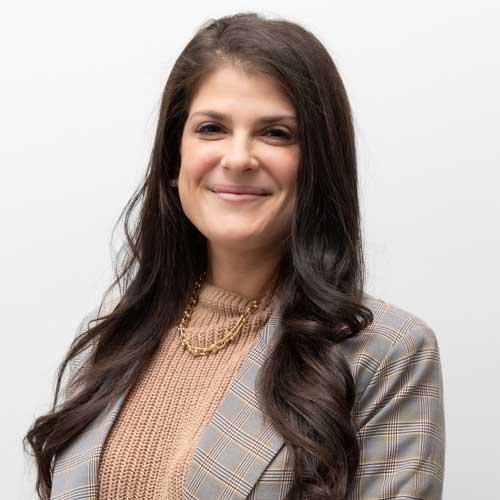Craving is a key symptom of substance use disorders — and one that is often outside your direct control.[1] But with the help of a Connecticut addiction treatment center, you can learn actionable skills and techniques that help you overcome cravings as they appear and ultimately be rid of them once and for all.
The Phenomenon of Craving and How to Stop Addiction Cravings
Invasive cravings for drugs or alcohol are one of the key diagnostic criteria of a substance use disorder. But understanding a craving doesn’t require a personal experience with addiction – anyone can have cravings from time to time. Knowing how to stop addiction cravings can make a huge difference in managing them.
When people say they “crave” a particular food, for example – they are referring to the feeling of having a sudden, invasive, and pervasive thought for that food. Eating something else may solve your hunger, but the craving can last for days until it is satisfied.
A similar thing occurs with people with substance use disorders. A craving can come upon you at any moment and can often leave a lingering effect on your mood, thoughts, and behavior. If left unaddressed, a craving can ultimately lead to a drug or alcohol relapse.
Recognizing this phenomenon, researchers and clinicians have developed several tools for helping people understand cravings, why they happen, and what can be done to overcome them.
Cravings and Triggers: Coping with Cravings Effectively
The first piece of the puzzle in understanding cravings is recognizing the impact of triggers. Triggers refer to any event, situation, or emotion that sparks a craving. Importantly, these can be either stressful situations or happy occasions — both can be associated with fighting alcohol cravings or cravings for other substances.
Common examples of triggers may include:
- Seeing an alcohol advertisement
- Going to a bar
- Hearing your friends talk about substance use
- Seeing drug paraphernalia
- Feeling sad, anxious, or alone
- Feeling happy, excited, or energetic
- Going to the places you used to use substances
- Any of these situations can trigger and spark a craving that’s hard to resist.
How Triggers Are Learned in Addiction Cravings
Triggers are associations the brain makes that spark a pattern of thoughts and behavior. Brains are the ultimate pattern-making machines, and these patterns can be complicated to break on your own.
Take the example of feeling lonely. If when you felt lonely in the past, you turned to substance use to cope, your brain will learn that loneliness is solved by substance use. Since you don’t like feeling lonely, any feelings of loneliness can trigger you to return to substance use.
How A Connecticut Addiction Treatment Center Can Help You Overcome Cravings
A Connecticut addiction treatment center can provide several different tools, coping styles, and mental health treatment programs to help you break the associations between triggers and cravings and teach you to manage cravings whenever you experience them. This could include several strategies for fighting alcohol cravings and how to overcome cravings in general.
Helping Identify Triggers for Cravings
The first step in breaking the association between a trigger and a craving is identifying the triggers. This is a process of delving into the root causes and conditions that have led you to substance use in the past and determining where your common categories of triggers may lie.
Some triggers are easy for anyone to identify — such as seeing someone else use your drug of choice. But others can be subtle, and addressing them is a key part of coping with cravings.
Teaching Coping Skills for Overcoming Addiction Cravings
Even if you’ve identified every possible trigger, they cannot always be avoided. Learning healthy coping mechanisms is a much more practical and effective way of dealing with cravings and can last a lifetime. Coping with cravings is vital for maintaining long-term recovery.
Working with a therapist or recovery support group can help you find actionable tools to help cope with cravings if and when they occur. This could mean practicing breathing or mindfulness techniques, reaching out to a recovery connection, or engaging in a distracting and healthy activity as an alternative.
Evidence-Based Interventions to Stop Addiction Cravings
These programs focus on helping people stop addiction cravings through techniques like mindfulness-based relapse prevention, cognitive-behavioral therapy, and relapse prevention programs, all shown to help reduce cravings effectively.
- Relapse prevention programs
- Mindfulness-based relapse prevention
- Cognitive-behavioral therapy
- Motivational interviewing
- 12-step facilitation
These structured treatment plans have repeatedly been shown to help reduce the feeling of craving in academic and clinical studies, as well as supporting people on their path to sobriety. They are led by specially trained mental health and addiction experts and provide you with an abundance of coping skills and tools to help you overcome cravings once and for all.
Personal Strategies to Cope with Cravings and Stay Sober
If you need to deal with cravings right now, there are a few simple things you can do to help reduce the craving and stay sober. Some of the best personal strategies to cope with cravings include mindfulness practices, exercise, or calling a supportive friend to help with fighting alcohol cravings.
- Mindfulness practices
- Exercise
- Calling a supportive friend
- Helping others
- Creative expression
- Journaling
Know that cravings are temporary. The best strategies to cope with cravings are those that get you out of your mind and into action or those that shift your focus from yourself to others.
Start Treatment at a Connecticut Addiction Treatment Center to Overcome Cravings
If you’re struggling to deal with cravings on your own, reach out to the Connecticut Center for Recovery by calling our team or sending us a message on our confidential online contact form. With professional help, you can learn how to overcome cravings and stay sober for the long term.
Sources:
[1] https://doi.org/10.1146/annurev-clinpsy-021815-093351
[2] https://europepmc.org/backend/ptpmcrender.fcgi?accid=PMC3408809&blobtype=pdf

Alexis earned both a B.S. in Psychology and a B.S. in Family and Child Sciences from Florida State University and an M.A. in Marriage and Family Therapy from the University of San Diego. She holds licenses in Marriage and Family Therapy in Florida, Connecticut, and Massachusetts and is also a member of the American Association for Marriage and Family Therapy (AAMFT).
Alexis works with families, couples, children, and groups and also has a sub-specialty in addiction and recovery. She utilizes an integrated, systemic approach to counseling; empowering people to define what is not working for them in their lives and to discover the possibilities for making life work. In doing this, clients are guided towards identifying their strengths, accessing their resources, tapping into their potential for success, and taking action toward achieving their desired goals.
Alexis also has extensive experience in the administration of behavioral health organizations. She has developed, built, and supervised several facilities encompassing all levels of care while leading them through state licensing and The Joint Commission accreditation process.

